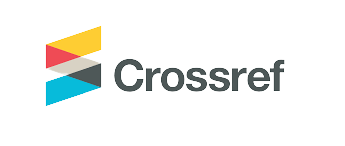Islamic Character Education in the Digital Era: A Case Study of Junior High Schools
Kata Kunci:
Islamic Character Education, Digital Era, Junior High School, Islamic Digital Literacy, Educational StrategyAbstrak
This study aims to examine the strategy and implementation of Islamic character education at the Junior High School (SMP) level in facing the challenges of the digital era. Using a qualitative approach through a case study method, this study analyzes the school's efforts to synergize Islamic character values with digital culture that is now part of students' daily lives. The results of the study indicate that the transformation of Islamic character education has been carried out through various strategies, such as the integration of Islamic values in digital media, strengthening Islamic-themed digital literacy, teacher training, and collaboration between schools and parents. However, there are still obstacles such as the gap in teachers' digital competence and unequal access to technology. This study emphasizes the importance of making the digital era an opportunity, not a threat, in forming students' contextual and relevant Islamic character. These findings are expected to provide practical contributions to the development of an integrative and adaptive Islamic character education model.
Referensi
Antoro, K. D., Nurhidayah, R. E., & Ali, M. M. (2025). Qur ’ anic Persfective on Science : I mplications for Islamic Education Curriculum. JISEI: Journal of Islamic Studies and Educational Innovation, 01(01), 1–9.
Bandi, A. M. (2011). Pembentukan Karakter Anak Melalui Aktivitas Bermain dalam Pendidikan Jasmani. Jurnal Pendidikan Jasmani Indonesia, 8(April), 2. https://doi.org/https://doi.org/10.21831/jpji.v8i1.3477
Creswell, J. W. (2022). Mixed Methods Research and Evaluation. Thousand Oaks: CA: SAGE Publications.
Dalimunthe, M. A., Pallathadka, H., Muda, I., Manoharmayum, D. D., Shah, A. H., Prodanova, N. A., … Singer, N. (2023). Challenges of Islamic education in the new era of information and communication technologies. HTS Teologiese Studies / Theological Studies, 79(1), 1–6. https://doi.org/10.4102/hts.v79i1.8608
Ekawati, R. N. (2025). Education Secularism in Indonesia and Society ’ s Interpretation. JISEI: Journal of Islamic Studies and Educational Innovation, 01(01).
Faizah, N. (2022). Pentingnya Pendidikan Islam dalam Pembentukan Karakter Siswa di Sekolah. Edukasi Islami, (2), 1287–1304. https://doi.org/10.30868/ei.v11i01.2427
Fetra Bonita Sari, Risda Amini, M. (2020). Transformation of 21st Century Education in Realizing Superior Human Resources Towards Golden Indonesia 2045. Jurnal Basicedu, 5(5), 3(2), 524–532. https://doi.org/https://doi.org/10.31004/basicedu.v7i5.5030
Herdiyanti, Y., Janah, M., & Susanto, R. (2025). Building a Golden Generation : Synergy of Education , Technology , and Qur ’ anic Values. JISEI: Journal of Islamic Studies and Educational Innovation, 01(01), 36–48.
Huberman, A. M., & Jhonny, S. (2014). Qualitative Data Analysis a Methods Sourcebook. America: Arizona State University.
Mujahid, I. (2021). Islamic orthodoxy-based character education: creating moderate Muslim in a modern pesantren in Indonesia. Indonesian Journal of Islam and Muslim Societies, 11(2), 185–212. https://doi.org/10.18326/ijims.v11i2.185-212
Mulyadi, O. :, Inayati, M., & Hasan, N. (2023). Revitalisasi Pendidikan Islam Tradisional Dalam Era Transformasi Digital. Al Qodiri : Jurnal Pendidikan, Sosial Dan Keagamaan, 20(3), 486–500. Retrieved from https://ejournal.kopertais4.or.id/tapalkuda/index.php/qodiri/article/view/4961
Nursinggah, L., Ruuhwan, R., & Mufizar, T. (2024). Analisis Sentimen Pengguna Aplikasi X Terhadap Program Makan Siang Gratis Dengan Metode Naïve Bayes Classifier. Jurnal Informatika Dan Teknik Elektro Terapan, 12(3). https://doi.org/10.23960/jitet.v12i3.4336
Priyambodo, A. B. (2017). Implementasi Pendidikan Karakter Semangat Kebangsaan Dan Cinta Tanah Air Pada Sekolah Berlatar Belakang Islam Di Kota Pasuruan. Jurnal Sains Psikologi, 6(1), 9. https://doi.org/10.17977/um023v6i12017p9-15
Puji, F. D. A., Hani, N. U., & Kumalasari, E. (2025). Exploring Knowledge from the Qur ’ an : The Concept of Multidisciplinary Education in Islamic Culture. JISEI: Journal of Islamic Studies and Educational Innovation, 01(01), 22–35.
Romdhoni, W. Z., & Anam, C. (2025). Innovative Strategies in Improving the Quality of Learning in Digital-Based Elementary Schools. 01(01), 69–81.
Sampurna, P. C., & Jannah, P. N. (2025). Recontructing Islamic Pedagogy : A Critical Analysis of Traditional and Modern Teaching Approaches. JISEI: Journal of Islamic Studies and Educational Innovation, 01(01), 48–62.
Sugiyono. (2010). Metode Penelitian Pendidikan. Bandung: CV Alfabeta.
Sugiyono. (2015). Metode Penelitian Pendidikan (Pendekatan Kuantitatif, Kualitatif, Dan R&D). Bandung: Alfabeta.
Susanto, R. (2024). Konsep Pendidikan Karakter dalam Islam. U ME Publishing.
Susanto, R., Ali, M. M., & Hidayat, M. D. (2024). Islamic Religious Education in the Independent Learning Curriculum. IKTIFAK : Journal of Child and Gender Studies, 02(02), 63–72. https://doi.org/https://doi.org/10.55380/iktifak.v2i2.962
Susanto, R., Rohmah, W., Hidayanti, S. N., & Sugiyar, S. (2023). Interreligious Harmonization (Analytic Study of Kalicinta Village, Kotabumi, Lampung). Jurnal Kodifikasia: Jurnal Penelitian Keagamaan San Sosial-Budaya, 17(1). https://doi.org/http://dx.doi.org/10.21154/kodifikasia.v17i1.5729
Susanto, R., & Sugiyar. (2023). Implementation of Mutammimah Book Learning on the Reading Ability of Kutub al-Turats at Madrasah Riyadlotusy Syubban Ponorogo. Edukasi Lingua Sastra, 21(1), 207–2017. https://doi.org/https://doi.org/10.47637/elsa.v21i2.667
Wahyudi, A., Nuriana, A. Q., & Irfan, M. (2025). Cultural Adaptation in Islamic Education : Navigating Between Tradition and Modernity. JISEI: Journal of Islamic Studies and Educational Innovation, 01(01), 101–114.
Wijaya, N. K., & Aini, S. (2020). Empowerment of Santri in the Development of the Creative Economy “Kimi Bag” at the Al Qohar Islamic Boarding School, Klaten. Dimas: Jurnal Pemikiran Agama Untuk Pemberdayaan, 20(1), 23. https://doi.org/10.21580/dms.2020.201.5124
Yahuda, R. D., Susanto, R., Widodo, W., & Kolis, N. (2024). Totally Muslim Truly Intellectual-Based Holistic Education in Postgraduate Programs. QALAMUNA: Jurnal Pendidikan, Sosial, Dan Agama, 16(2), 1399–1410. https://doi.org/10.37680/qalamuna.v16i2.4104
Unduhan
Diterbitkan
Cara Mengutip
Terbitan
Bagian
Lisensi
Hak Cipta (c) 2025 Journal of Islamic Studies and Educational Innovation

Artikel ini berlisensiCreative Commons Attribution-ShareAlike 4.0 International License.







